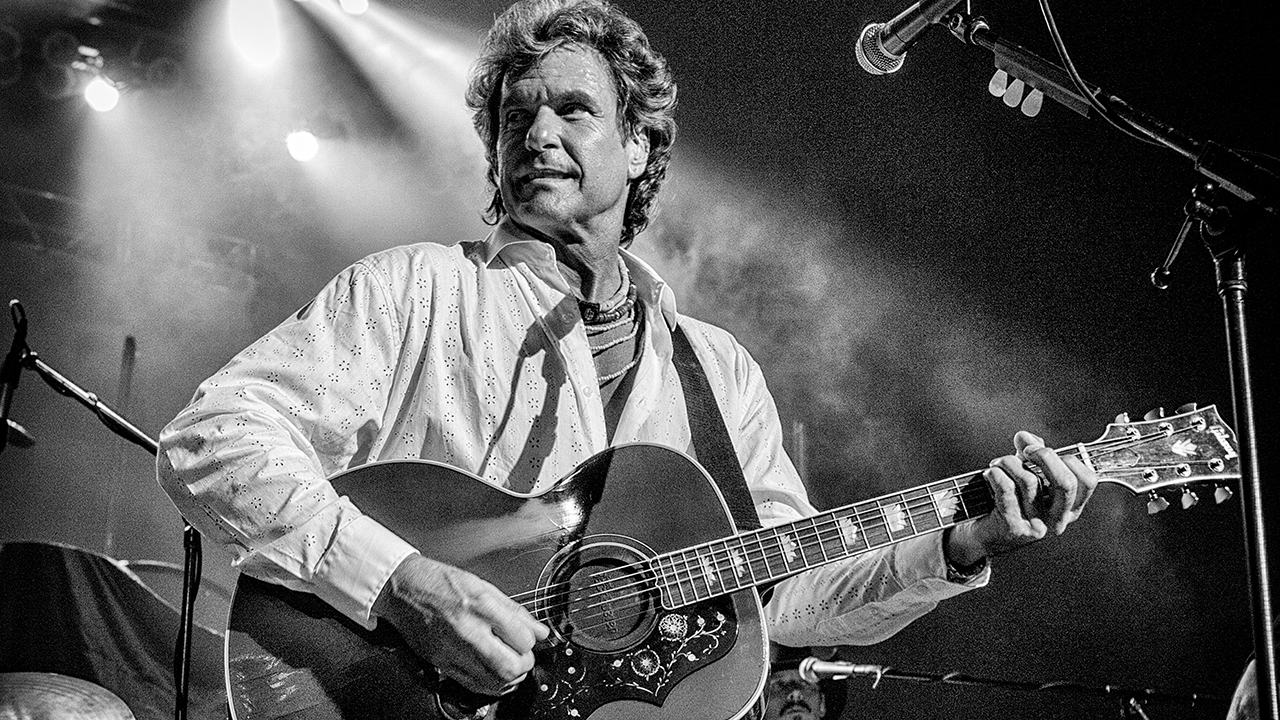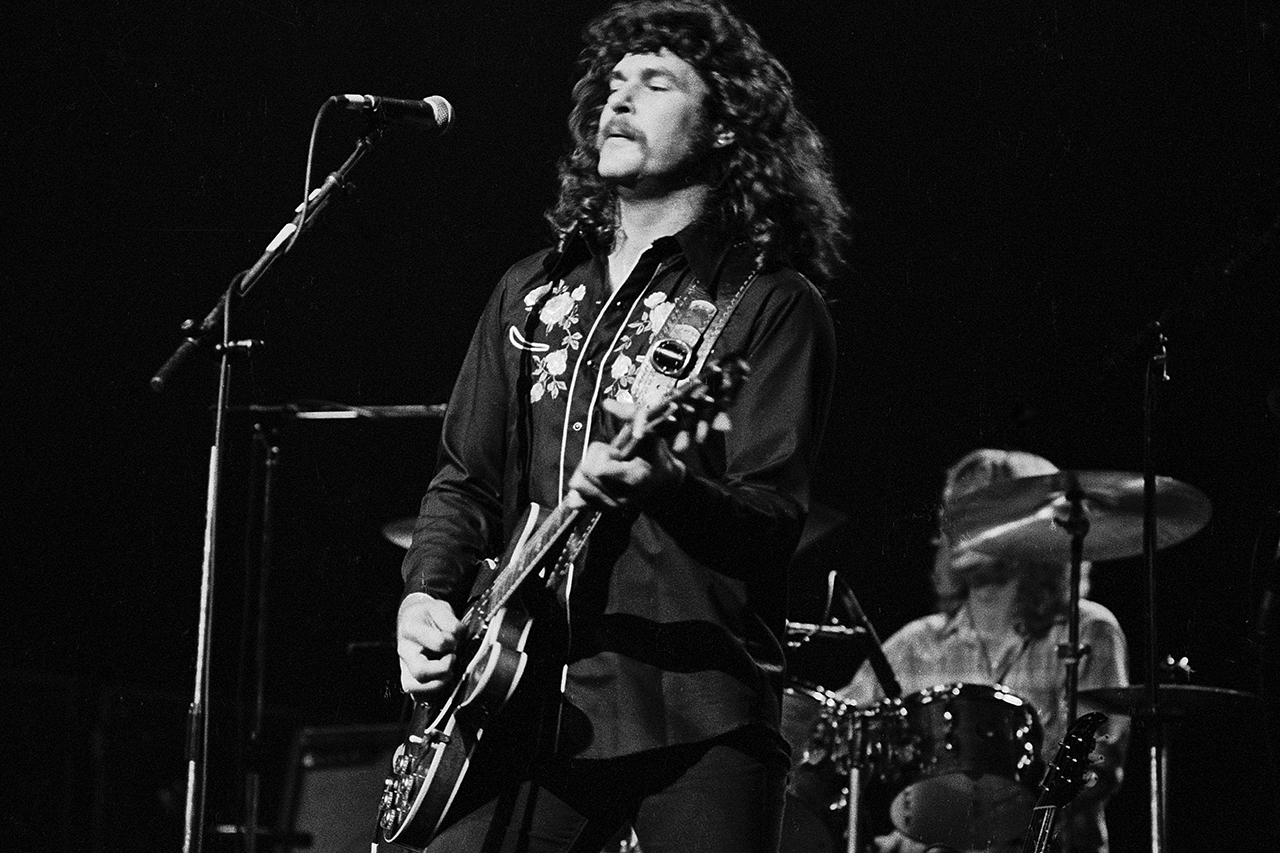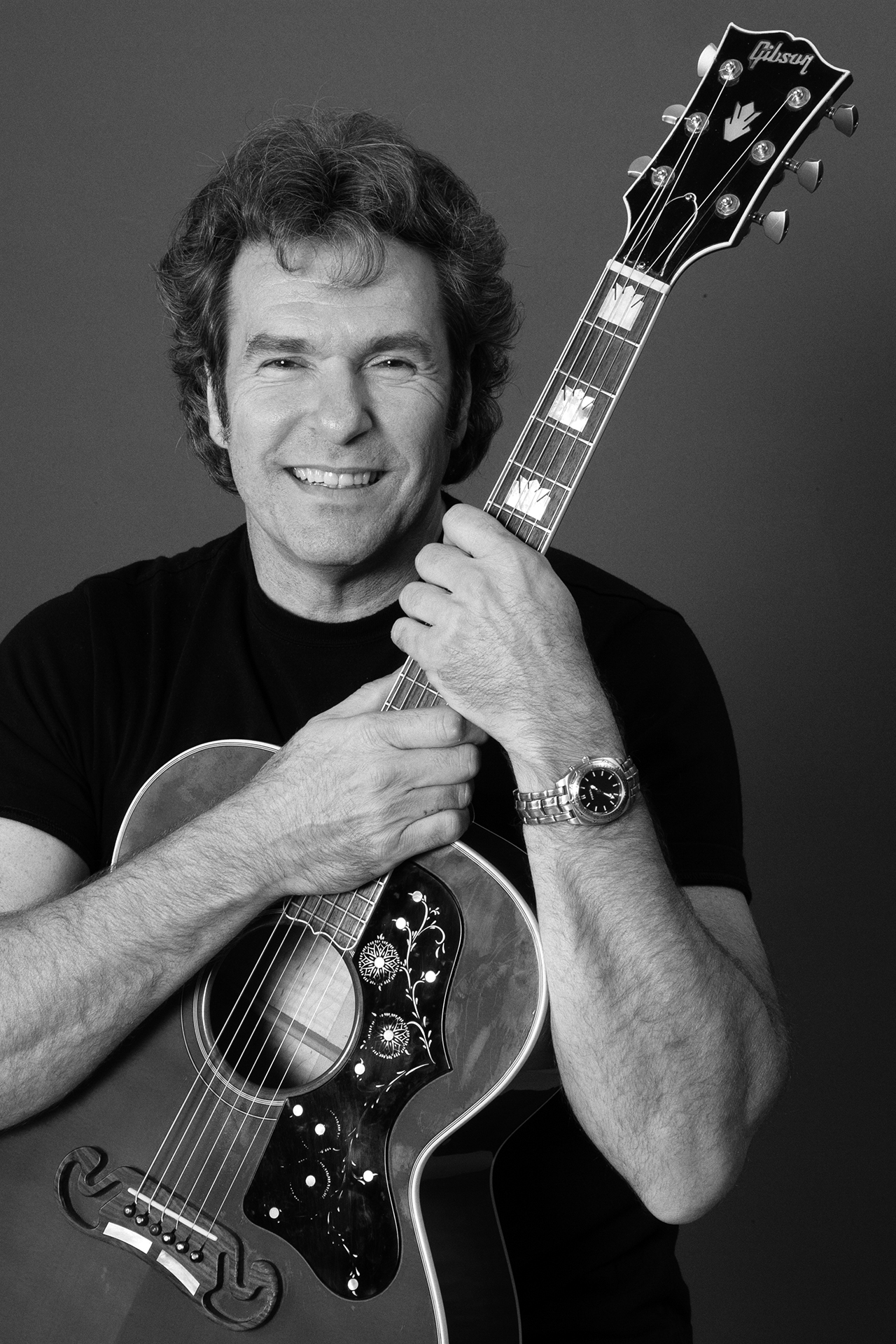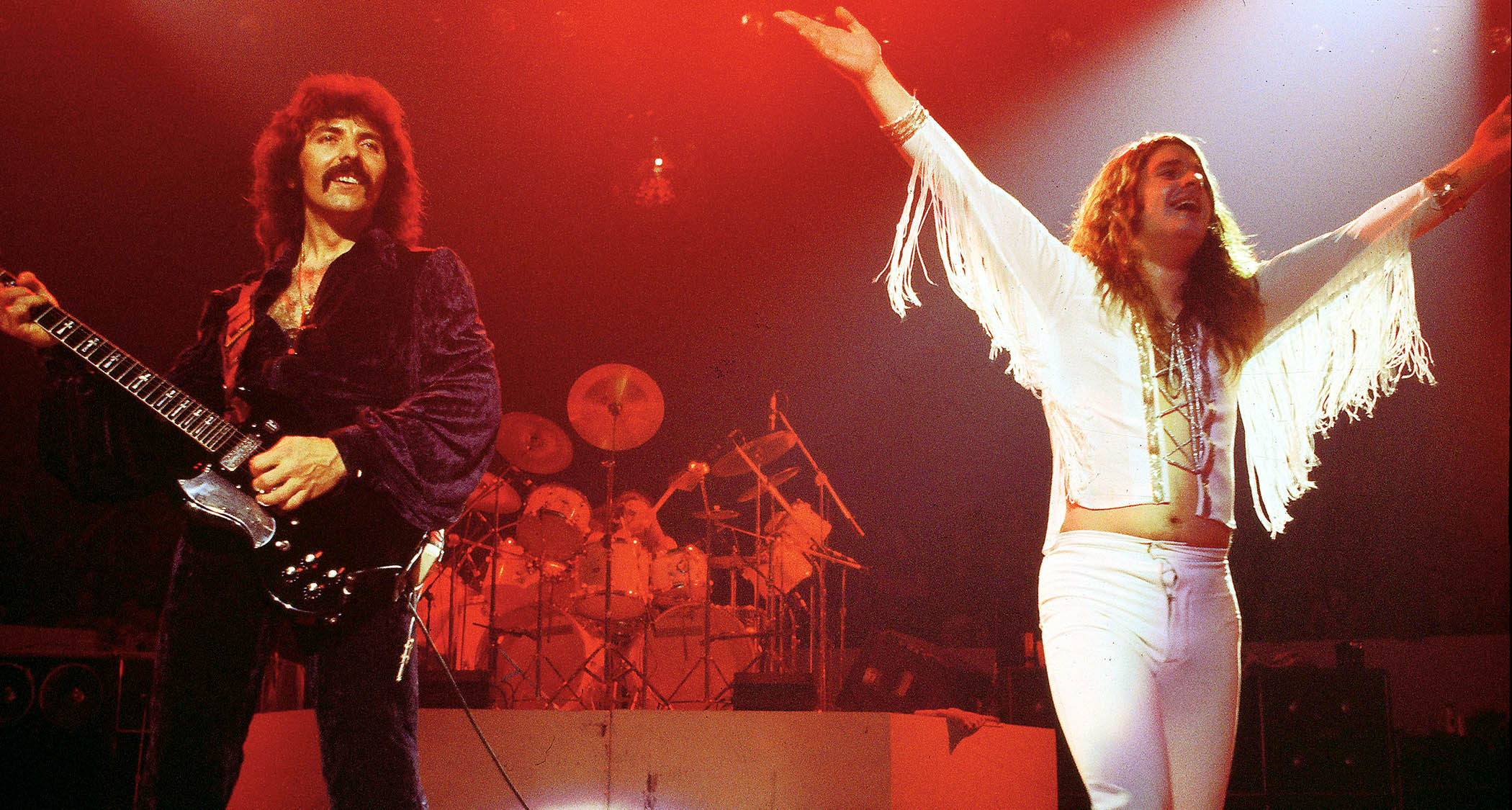“I toured with Stevie Ray Vaughan when he was sober and he was a freak of nature. I couldn’t relate to his playing”: The Outlaws' Henry Paul on opening for The Rolling Stones, finding fame thanks to Lynyrd Skynyrd, and his one-of-one red Gretsch Falcon
The Gibson loyalist who’s served three stints with the Outlaws has been there, done that – played to stadium crowds, seen rock's greatest guitar heroes up close and witnessed prime-era Keith Moon debauchery

All the latest guitar news, interviews, lessons, reviews, deals and more, direct to your inbox!
You are now subscribed
Your newsletter sign-up was successful
Best of 2025: Over the holiday season, GW is shining the spotlight on some of its biggest stories of the year.
Southern rock linchpin Henry Paul has carved a career through rootsy experimentation, industry grind, and the resilience to rise again after being fired from The Outlaws, the band that made his name.
The popular outfit’s first national tour was as openers for Lynyrd Skynyrd. Arista Records’ Clive Davis saw gold and cut a deal – after Ronnie Van Zant told him, “If you don’t sign The Outlaws, you’re the dumbest music person I’ve ever met”, which probably helped.
A dream ’70s rock career followed, including a string of stadium and arena shows alongside The Rolling Stones, The Who, The Allman Brothers, and many more. But the ride hit the skids in 1977, when Paul was booted to the curb in a sudden confrontation.
“I’d never had the impression there was a problem,” the upstate New York native reflects. “They said my country rock influence was holding them back and they wanted to move into a more progressive direction. It was very hurtful. But I focused my attention to rebuilding and coming back.”
He went on to further success with The Henry Paul Band and Blackhawk – going double-platinum with the latter's self-titled 1994 debut – while commencing a third, still-ongoing stint with the Outlaws in 2005 (he also re-joined them for a time in the 1980s). He’s told his story in new memoir, The Last Outlaw.
How did you find your way to guitar?
All the latest guitar news, interviews, lessons, reviews, deals and more, direct to your inbox!
“My stepbrother, being fairly well accomplished, taught me a little. I started writing my own songs and bought a painted plywood job with brass frets for $13. But my first great guitar was a '67 Gibson J-50.’”
Was there a difference in the music scenes of New York and [the Outlaws' native] Florida?
“The scene in Florida was healthy, competitive, and at a high level professionally – light years ahead of the New York scene, which was mired in the ‘50s. In New York, a man asked me to play for Epic Records. They told me to move to Nashville, which sounded far away and abstract.
“I went back to Florida to play a show featuring artists from Tampa who’d gotten big. It was really electric, so I put a band together, and with persistence, The Outlaws got signed.”
“Charlie Brasco decided to manage us, and booked our first out-of-town tour, including two nights in Nashville with Lynyrd Skynyrd. They raved about us and their management formed a partnership with ours. An A&R director from Arista loved us. We cut a record with Paul Rothchild and soon we were on the radio and becoming rock stars.”
Do you remember Ronnie Van Zant telling Clive Davis to sign you?
“I was embarrassed! But Ronnie was like that – he’d taken a personal role and invested himself in helping us. He was pretty persuasive and we were an ascending band, so it was helpful to motivate Clive.”
Did you gain any musical insights from Gary Rossington or Allen Collins?
“You always learn a lot from watching other people. Lynyrd Skynyrd’s musical personality had a very intense quality, and that was a part of The Outlaws. I learned a lot from Pat Simmons on our first tour with The Doobie Brothers, just watching his stage performance.
“When you’re popular in music, popular personalities treat you as equals, which makes you feel good. At one point we were opening for The Rolling Stones, and Mick Jagger and Keith Richards came into our dressing room to say they loved us.”
How did you come to open for The Stones?
“Those dates fell into our lap out of nowhere. The first time, we played Louisville at Freedom Hall, and the Stones’ audience loved us so much that we were asked to play in Virginia at the Hampton Coliseum, and then in Buffalo at the Rich Stadium in front of 80,000 people.
“We drove to Buffalo, put ourselves out there in front of all these people who didn’t know us, and got them on our side. We always put on a good show for the Stones – we didn’t embarrass ourselves! You animate yourself to be visible because there’s no way you can spread yourself that thin. I played to the first 50 rows, concentrating on the people I could see.”

How was it being a Southern rock guy playing to a UK rock audience?
“They’re much more opinionated and physically invested in the UK. If they don’t like you, they’re pretty creative in displaying their displeasure. They’d pee in beer bottles and throw it at you. You didn’t want to let them down in case they whooped your ass! We played for our lives supporting The Who – but we won them over.
“There was a great deal of variety in the British music charts. I couldn’t find words to express how different it was. The beer was warm, the people were great, really badass and soulful; but we related to them as rednecks.
Stevie Ray Vaughan was uniquely impressive. I couldn’t relate to his playing. I’d never seen anyone play like that
“One time we pulled into Glasgow and these boys running beside our bus stuck two fingers up at us. I thought, ‘Oh – a peace sign!’ But it wasn’t peace at all, and they didn’t even know who we were!”
Did you take any inspiration from seeing The Who?
“The Who were the most powerful band, unlike anything I’d ever seen before. Roger Daltrey was this gorgeous human: the greatest frontman, with his shirt open and his hair curly. Pete Townshend was crazed out of his mind. Each player had such distinct personalities. The music was mind-boggling; so loud, so powerful, and so incredibly played.
“Keith Moon would come and hang with us, although the other guys didn’t. One evening we went to a restaurant and an American couple mistook Keith for a server because he had a tuxedo on. They wanted a bottle of wine, so he grabbed one and poured it all over the guy! He must have paid hundreds of pounds for the guy’s wet clothes. Keith lived in a different place on this Earth.”
Who’s the finest player you’ve ever met?
“Stevie Ray Vaughan was uniquely impressive – it didn’t look like he was playing. His right hand was so free on the strings, like he was strumming, but he was making notations. I toured with Stevie when he was sober and he was a freak of nature. I couldn’t relate to his playing. I’d never seen anyone play like that.”
In 1977, you were kicked out of The Outlaws.
“Band business is a social structure that people manipulate. Some are very skilled and some are naïve. In the ‘80s, The Outlaws’ manager told [late guitarist] Hughie Thomasson to put the original band back together because they’d floundered. Knowing people weren’t digging it made me feel better.
“The reunion lasted for six years, and it was the most fun I’d ever had in music – it was free of pressure. We weren’t getting rich, but we were making money and doing well in the marketplace.

“When Hughie wanted the band back, I went on my merry way. I was happy to move on again; it became clear there were self-absorbed issues, designed to help one person out.”
What has been your most faithful guitar throughout the years?
“Mainly acoustic electrics like Gibson 335s or 330s. My original white 330 with P-90s was my favorite guitar. I wish I had it back! Eventually I started playing Ovations, which really were an improvement.
“All the Outlaws now play red guitars and amps. I couldn’t find a red Gretsch Falcon, so I bought a black one and a guy in Chattanooga refinished it in fire-engine red. it’s gorgeous.
“My everyday road guitars are my red and black Gibson J-200s – they’re beaten to crap but they sound great. There’s a little distortion to my guitar, but I don’t mess with pedals. I plug into the amp and play.”
- The Last Outlaw: My 50 Years in Southern Rock & Country is out now via Mirror Lake Publishing.
Naomi Baker is a contributing freelance music journalist for GuitarWorld.com. After interviewing the legendary Mick Wall for her dissertation on rock journalism’s evolution, she now pursues her passions for writing and rock music. Naomi plays guitar and bass and loves nothing more than scrutinizing artists who heavily shaped and paved the ways of rock. She revisits music played extensively throughout her childhood daily, with acts like Thin Lizzy, The Darkness and Queens of the Stone Age top of the list.
You must confirm your public display name before commenting
Please logout and then login again, you will then be prompted to enter your display name.



